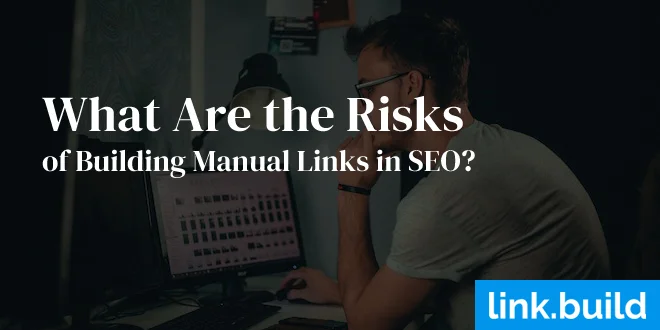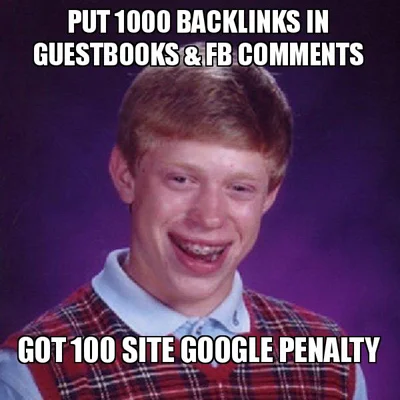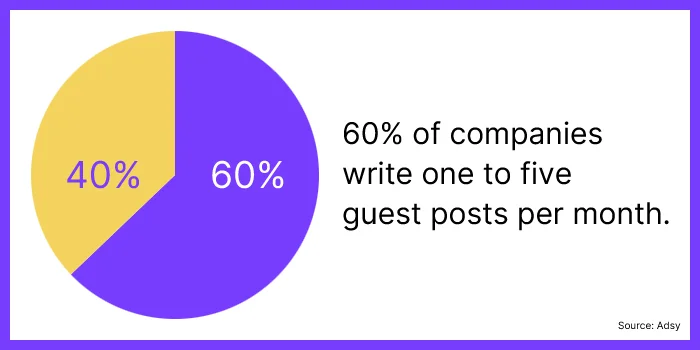What Are the Risks of Building Manual Links in SEO?

Link building plays an essential role in SEO. Yet it comes with its own set of risks.
In this guide, we will break down these dangers associated with both automated link building and manual link building practices.
We aim to spell out how website owners can stay alert while using such manual link building strategies for their sites.
What is Link Building in SEO?
To kick things off, let's get to grips with link building. It basically means getting other websites to have links that lead back to your site. Why is this important? Well, search engines see these as a thumbs-up for your content – it tells them other people find what you're saying helpful and relevant.
When speaking about manual link building techniques or manual link building efforts involved in providing manual link building services - they would be integrated into the same concept of gaining hyperlinks from different web pages directed towards yours, just done manually by someone instead of an automated service.
Risks of Building Links
Now, let us delve into the hazards associated with link building:
Google Penalties

Google has rules set up. If you try to trick them for links, they won't be happy. Using these sneaky tricks could get your site in trouble with Google's systems.
Here's the scary part: if Google punishes you, it means fewer people will find your website in their searches. This is bad news and can really harm your business!
That’s why a manual link building strategy is crucial! It helps secure high quality links that are sure to impress both users and search engines alike.
So don’t risk it; go for quality link building practices instead of shady ones. That way, every single manual link leads back to more success (and fewer headaches) down the road.
Inferior Quality Links
Bad links come from spam-filled or unrelated sites. They don't boost your website's search engine ranking and can even harm it. Google is now really good at spotting these low-quality, manual links. If a site has too many of them, they could get penalized by Google.
So as a link builder who cares about the reputation of their site - BEWARE. The best action to take would be hiring professional link building services for high-grade results.
Negative SEO
Unfair competitors could damage your website's search engine rankings. They do this through negative SEO, a shady practice that can hurt you big time.
What does it involve? Well, they start by linking low-quality websites to yours. Yes! If there are too many poor quality links attached to your site, it becomes an easy target for these bad practices.
But how can we prevent this? A professional link building strategy is one way out. Focusing on relevant and authoritative websites in our link building process helps shield us from automated links which are often of inferior quality.
Loss of Trust
Building links can be quite a challenging and time-eating task. Some folks who own websites might even buy links or use tricks to speed things up. But, beware! If Google spots you doing such stuff, your website's trust could take a big hit. Recovering lost credibility is tough work; it may also harm how people view your business.
Talking about manual link building refers specifically to the hands-on process of creating these connections yourself rather than allowing them to form naturally over time through other actors on the internet making those associations for you.
As part of this effort, remember that attract links from outside sources should also come into play as well - they're very valuable.
You don't want broken links either - these are bad news since they lead nowhere and just frustrate users trying out your site.
Unnatural Anchor Text
Hyperlinks, also known as anchor text, are crucial in any content. They need to seem organic and relevant to the stuff they're connecting with. Overusing precise keyword matches might look tricky and lead to penalties.
For instance, other link building methods like guest blogging or broken link building should be utilized properly. Also remember that using numerous low quality links can negatively impact your strategy.
How to Avoid the Risks of Link Building
To evade these hazards, it is crucial to participate in ethical link building practices. Here are some suggestions:
Focus on Quality

Rather than fixating on the quantity of links, prioritize the quality of the links you are obtaining.
Ensure that the websites linking to your content are pertinent, authoritative, and trustworthy.
Be picky when it comes to guest blogging.
Earn Links Naturally
The most effective way to obtain links is to create high-quality content that people naturally want to link to. This approach necessitates time and effort, but it is the most efficient and ethical way to build links.
Diversify Your Links
Obtaining links from a diverse range of sources can assist you in avoiding Google penalties. Rather than relying on one or two sources, endeavor to obtain links from a multiplicity of websites.
Monitor Your Links
Periodically monitor your website's backlinks to ensure that they are not inferior quality or spammy. Use tools such as Google Search Console or Ahrefs to track your backlinks.
Conclusion
In conclusion, link building is an indispensable component of SEO, but it is not without its hazards. To circumvent these hazards, website owners and SEO practitioners must participate in ethical link building practices and prioritize quality over quantity. By doing so, they can ensure that their website's search engine rankings continue to improve without risking penalties or other deleterious consequences.


.svg)


.jpg)
.jpg)